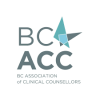The fear of flying, also known as aviophobia, is a common anxiety disorder that affects millions of people. It can be a debilitating condition that prevents people from travelling by plane, limiting their opportunities for work, vacation, and visiting loved ones. However, with the right strategies, it is possible to overcome the fear of flying.
One effective strategy for overcoming aviophobia is to educate oneself about the safety of flying. Many people’s fear of flying is rooted in misconceptions and misunderstandings about the safety of airplanes. By learning about the statistics and facts of flying, individuals can begin to understand that flying is one of the safest forms of travel. Reading articles, watching documentaries and talking to pilots or air traffic controllers can be helpful.
Another strategy is to gradually expose oneself to the fear-provoking situation. For example, one could start by visiting an airport and watching planes take off and land. Then, they could take short flights and progressively work up to longer flights. This gradual exposure can help to desensitize individuals to their fear and help them to see that flying is not as scary as they once thought.
Cognitive-behavioral therapy (CBT) is another effective strategy for overcoming aviophobia. This type of therapy in Victoria BC focuses on identifying and challenging negative thoughts and beliefs that contribute to the fear of flying. A therapist can also teach individuals coping strategies to use during a flight, such as deep breathing and progressive muscle relaxation.
Brain-training with neurofeedback is another approach to reduce the fear response on the nervous system. Regular training prior to a flight, especially coupled with the other strategies listed, can help you feel more at ease and present in the face of your fears.
In conclusion, the fear of flying is a real and debilitating condition that can be overcome with the right strategies. By educating oneself about the safety of flying, gradually exposing oneself to the fear-provoking situation, cognitive-behavioral therapy, and neurofeedback, individuals can begin to overcome their aviophobia and regain the freedom and flexibility of travelling by plane.







